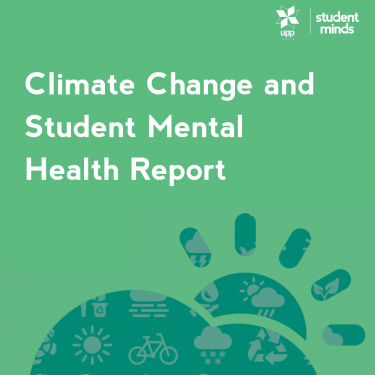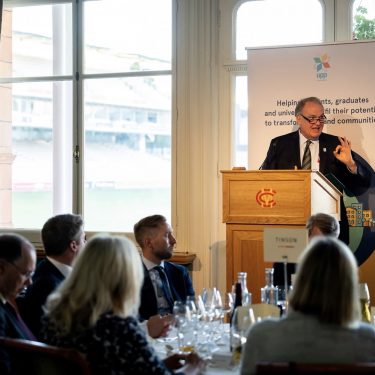UPP Foundation and University of Chichester publish toolkit to encourage access to university for homeless students
Since 2018 the University of Chichester, in partnership with the UPP Foundation, have developed a pioneering project which enables access to higher education for those who have faced homelessness.
The Adversity to University programme is a 12 week course where the students – who live in or have been supported by local homeless shelter Stonepillow – develop academic and critical thinking skills. If students successfully complete the course and dissertation, they can then go on and study for a degree at the University.
Over three years, 25 people have accessed the module, with 6 students then taking a qualification in maths or English to further their skills, and 5 others undertaking a full degree.
Lucy who had struggled with homelessness since she was 16, completed the bridging module in 2019 and now, aged 30, is in the third year of her Fine Art degree. She said:
“The bridging course gave me something to focus on, it gave structure and meaning in my life that I had lost altogether. I discovered the joys of research, essay writing and academia. The course gave so much more than that too, it gave companionship of likeminded individuals, the drive and belief that I could do anything I put my mind to and hope for the future. It, quite literally, transformed my life”
To mark the impact of the project to date, a toolkit has been published as a guide to other higher education institutions looking to establish projects to help more students like Lucy.
Despite action to prevent homelessness during the pandemic, more than 68,000 households became homeless or were threatened with homelessness in the first quarter of 2021.
With the recent renaissance of the civic university agenda alongside the sector’s commitment to widening access, it is hoped the toolkit will provide inspiration to universities looking to develop meaningful projects which help the most disadvantaged in their local communities.
The toolkit provides information to universities in a tangible way on how they can practically establish a similar course to unlock a path to higher education for homeless people in their towns and cities. The toolkit provides guidance on how to set up the course, its content and structure, common challenges and tips for sustainable funding.
Professor Jane Longmore, Vice-Chancellor of the University of Chichester said:
This project dismantles the hurdles by providing a route to academic study without judging the individual. It is a simple and elegant solution to some of our most deeply-rooted societal challenges. I hope universities use the toolkit and be as inspired as I have been by the transformational impact of this wonderful initiative.
Richard Brabner, Director of UPP Foundation said:
This project just proves what a difference can be made, with a relatively small amount of funding, if it is the right idea and the right partnership. With the Government’s plans for a Lifetime Loan Entitlement and the revitilisation of the civic role of universities in recent years, there’s no better time for higher education institutions to set up similar schemes in their local communities.
Becky Edwards, the senior lecturer at the Universiy of Chichester who leads the project said:
Some of the most able people in the UK are living in poverty both economically and aspirationally. They have not been privileged enough, lucky enough or supported enough to access a good education. Going to university is something they have never considered. This project gives them a second chance and proves the power of education to transform lives and re-shape futures.








